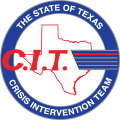Cross Creek Hospital Together With Ascension Seton helps children, adolescents, and adults who are struggling with oppositional defiant disorder through an unmatched quality of care and support. Located in Austin, TX, Cross Creek Hospital Together With Ascension Seton is the leading provider of oppositional defiant disorder treatment.
Learn More About Oppositional Defiant Disorder Treatment
Learn more about oppositional defiant disorder treatment at Cross Creek Hospital Together With Ascension Seton in Austin, TX
Cornerstone to oppositional defiant disorder, better known as ODD, are various behavioral and emotional disturbances that can cause strife for the youth who are struggling with this disorder. A mental health condition that is diagnosed in childhood, the functioning ability of a person with this illness can be hindered in several settings. Being that defiant and disobedient actions and verbal communication are part of ODD, young people with this disorder often receive disciplinary action at school as a result. Furthermore, parents and caregivers of these youth may have difficulty parenting them, as sufferers of oppositional defiant disorder tend to disregard or rebel against the wishes of those in positions of actual or perceived authority.
Young people with this disorder can also be frequently agitated since their mood is often angry or irritable. This aspect of ODD can cause a young person to respond aggressive to a minor trigger. Individuals caring for a youth with oppositional defiant disorder can be of great service to him or her if mental health care is implemented to alleviate symptoms of this condition. By engaging in treatment, a young person can learn to manage cumbersome ODD symptoms and caregivers can learn tools for helping their child at home so that a healthy and productive life can be on the horizon.
Statistics
Oppositional defiant disorder statistics
Among the many findings that were found after research was conducted on the prevalence of oppositional defiant disorder, it was realized that nearly ten percent of young people qualify for a diagnosis of this mental illness. Additionally, it was discovered that more male youth, 11%, experience ODD symptoms than female youth, 9%. Finally, it is widely believed among experts that most individuals who battle oppositional defiant disorder outgrow symptoms by the time they reach the late adolescent stage of life.
Causes and Risk Factors
Causes and risk factors for oppositional defiant disorder
There are several risk factors, genetic influences, and environmental contributors that can elicit the onset of oppositional defiant disorder symptoms. Explanations for how these variables affect the presence of ODD in a person are elaborated on below:
Genetic: A person’s genetics can be quite influential if an individual possesses a family history of certain mental illnesses. Especially if said individual has a family history of oppositional defiant disorder, there is an increased risk that that person will come to display symptoms of the disorder as well. Because of this, it can be concluded that ODD does, in fact, have a genetic factor.
Environmental: Since the onset of ODD symptoms occurs during childhood, mental health professionals believe that exposure to environmental influences can contribute to the development of this mental illness. Parental involvement, a child witnessing maladaptive or aggressive behaviors, trauma exposure, and ongoing stress can ultimately bring about symptoms of oppositional defiant disorder. Because of these elements, the environment in which a child is raised can have a significant impact on his or her mental health.
Risk Factors:
- Bearing witness to violent or aggressive behaviors
- Family history of mental illness
- Exposure to trauma
- Living in a stressful home
- Inconsistent parenting
- Exposure to substance use or abuse
- Being the victim of abuse and/or neglect
- Being raised in a chaotic environment
Signs and Symptoms
Signs and symptoms of oppositional defiant disorder
There are many behavioral, physical, cognitive, psychosocial inferences that suggest an individual is grappling with oppositional defiant disorder. If you suspect that a loved one is battling this disruptive condition, it is necessary to note the presence of the following signs and symptoms of this disorder and seek mental health treatment in order to reduce the severity of effects that could occur:
Behavioral symptoms:
- Breaking rules or laws
- Arguing
- Aggressive behaviors
- Fighting
- Instigating behaviors
- Intentionally destroying relationships
- Belligerent behaviors
- Being uncooperative
- Temper tantrums
- Seeking revenge
- Blaming others
- Constant disobedience
Physical symptoms:
- Increased blood pressure
- Accelerated heart rate
- Physical injury due to violent behavior
- Muscle tension
- Headaches
Cognitive symptoms:
- Low frustration tolerance
- Inability to concentrate
- Poor decision-making
Psychosocial symptoms:
- Agitation
- Irritability
- Inept social skills
- Lowered self-esteem
- Persistently negative attitude
Effects
Effects of oppositional defiant disorder
Allowing the symptoms of oppositional defiant disorder to remain without therapeutic intervention can lead to the onset of several effects that can have an impact on a person’s life in a negative way. The following effects are those that can occur when untreated ODD is a factor in an individual’s life:
- Social withdrawal or isolation
- Development of another mental health condition
- Disciplinary action at school
- Interaction with law enforcement
- Increased conflict within interpersonal relationships
- Inability to formulate meaningful relationships
- Academic failure
- Expulsion from school
Co-Occuring Disorders
Oppositional defiant disorder and co-occurring disorders
Oppositional defiant disorder involves a number of emotional and behavioral disturbances. Because these disturbances can be extreme at times, it is not uncommon for additional mental health concerns to exist simultaneously. Whether symptoms of another mental health disorder are triggered by the presence of ODD or have contributed to the onset of oppositional defiant disorder, it is possible that a person can meet diagnostic criteria for another mental illness at the same time. The listed disorders are those that are known to occur alongside a diagnosis of ODD:
- Depressive disorders
- Substance use disorder
- Attention-deficit/hyperactivity disorder
- Intermittent explosive disorder
- Language disorders
- Bipolar disorder
- Anxiety disorders
- Intellectual development disorder

















